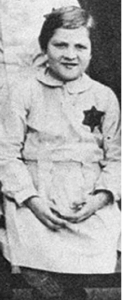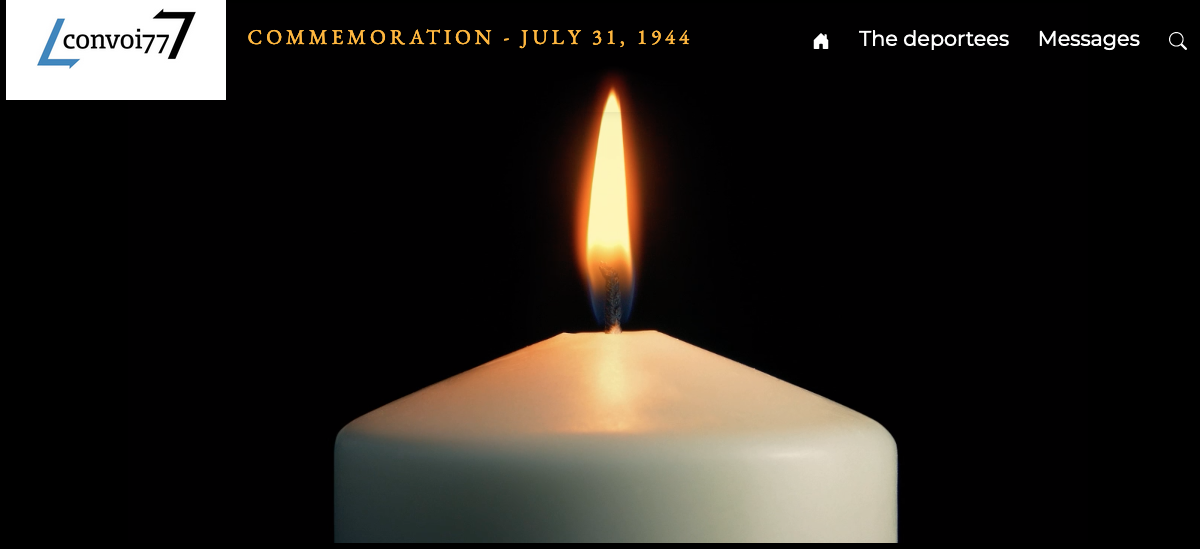Madeleine GRINBERG
Madeleine Grinberg was born in France on December 3, 1926. Aged 17 when arrested, she was detained at Drancy, then deported on July 31, 1944.
She was preceded by her parents, who were murdered at Auschwitz: her father Szyga, deported in August 1942 in convoy 16; her mother Ruchla, deported in February 1943 in convoy 47 (see note), hauled off by the police from her sickbed in the hospital.
Their children: three daughters (Pauline, Madeleine and Ginette) and a son, Marcel, plus an orphaned cousin, Paulette, that Szyga and Ruchla had taken in, were left in their apartment on the rue Saint-Paul in the 4th district of Paris.
As her older sister crossed into the Free Zone, Madeleine found herself at age 16 in charge of the family, coping as best she could to support her younger siblings. She seldom talked about it, except to mention occasionally the trips back and forth to farms to barter for food and the wooden crates she gathered and tied up in bundles for kindling, in exchange for whatever she could come up with.
She had taken part in the Resistance, probably during her excursions out to the countryside, but she said almost nothing about it. Maybe because she had never forgiven the partisans, all given over to the approaching victory and unmindful of the deportees, for letting the last convoys leave. She thought they could have taken advantage of the havoc to sabotage the railways and save those lives.
She would say there were so many children.
It is hard to understand how convoy 77 could have left Drancy for Auschwitz just a few days before the liberation of Paris, but one thing is certain: Madeleine was very intelligent, analyzing and comprehending very fast; her conclusions proved correct every time, and events bore her out.
Madeleine never revealed how and when the two youngest were evacuated, nor what occurred. At any rate, when the concierge of the building informed on the Jews on the third floor there were only two left to arrest: Madeleine and her brother Marcel.
They both survived Auschwitz. We know only that she was put to work in a factory.
She weighed 28 kilograms (62 lb.) on her return. For the rest of her life she was unable to stand the sight of any living being suffering from hunger or cold; she was compelled to feed them.
Left without parents or anyone else, Madeleine could not resume the studies she dreamed of and for which she was made. The survivors of the Nazi camps were treated medically upon their return, then left to get by more or less alone for several decades before finally receiving aid.
She got a job and married Aharan Likforman, a man who had “been lucky”: as a child he had been hidden and had escaped deportation. They had children and grandchildren.
She died on November 24, 2001, too soon to have known her great grandchildren.
She talked very little about Auschwitz, but she did say that it would happen again. As stated above, our mother was always right.
Note: Unlike all those who failed to realize it, Ruchla knew in 1943 that she would not be coming back; she wrote it down in a note she managed to get to her children.


 Français
Français Polski
Polski









